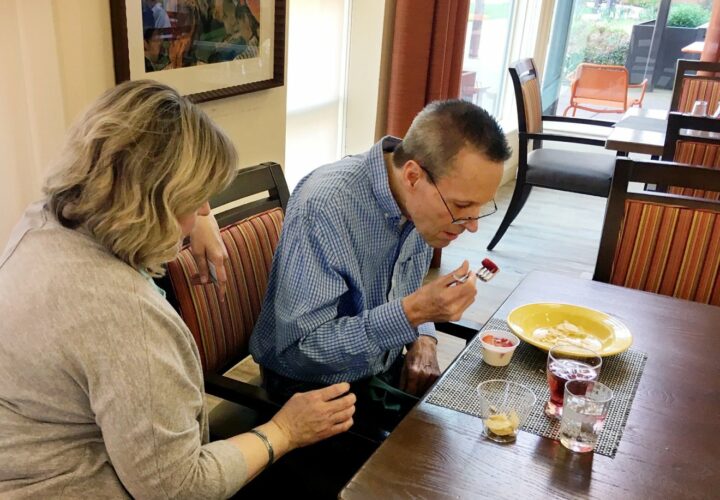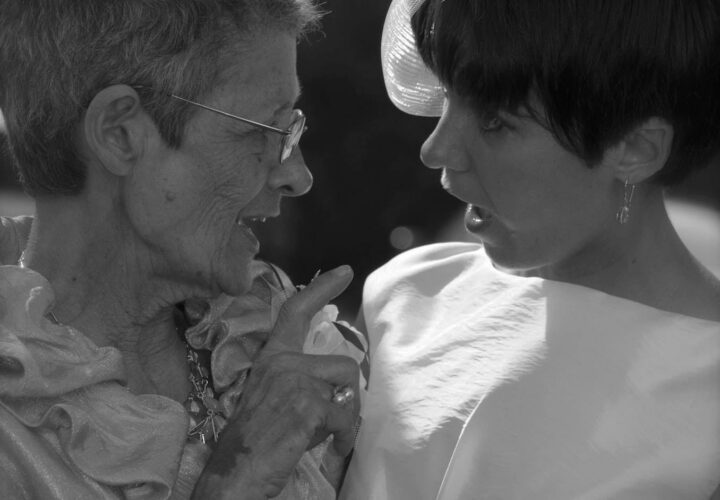Wandering, when in the context of Alzheimer’s disease, is defined as getting lost and becoming disoriented. It is a common behavior in those with Alzheimer’s. When I was my mother’s caregiver, there were a few occasions when she wandered into potentially dangerous situations.
One evening my mother was found by a neighbor wandering up and down the block where she lived. I was living with her as her caregiver at the time, but I had decided to attend a class that evening. I explained that to my mother, who had Alzheimer’s, and also left her a note reminding her where I was going. Even with these precautions, she became confused about where I was, which led to her wandering search.
While wandering might seem random, there is usually a trigger that causes wandering, such as confusion, according to experts. Brain changes due to dementia may cause confusion and disorientation even when those with dementia are familiar with their surroundings. Their confusion may trigger a desire to leave a familiar area on a search for something or someone.
In other cases of wandering, the person with dementia believes they need to escape from something. They can easily become over-stimulated, anxious, or stressed by something as simple as loud noise, or possibly too much conversation that they don’t understand. Sometimes a wandering Alzheimer’s patient is reliving past routines, such as shopping in a particular location. Dementia patients are often restless and stay in constant motion to soothe those feelings, which can lead them to wander.
Anyone with dementia can be prone to wandering, even if they have never gotten lost before. The urge to wander may make no logical sense to the caregiver. The caregiver will not likely get any warning that the person with dementia will wander until the first incident.
Wandering leads to risk of injury and steps must be taken for prevention. Provide 24/7 supervision, even if you have to ask for help to cover your absence, should you need to leave for any reason. Install home safety devices such as window locks, night lights, and stair gates. These measures also help prevent falls. A door alarm that sounds when opened can also alert a caregiver to a potential wandering episode—but as I learned, they are not infallible.
In the care home where my mother lived, they had a door alarm, which was required by law for state-licensed board and care homes. Every time I’d visit and the front door was opened to admit me, that alarm emitted a loud squawk. One night at the board and care, they forgot to turn on the door alarm after it had been disabled. Of course, that was the night Mom chose to wander.
Early the next morning she left her room carrying only a blanket. The caregivers had pushed a small couch to block the end of the hall to her room. Mom was able to push it aside and exit the front door. Later, a caregiver, Mary, went down the hall to check on the residents and found that Mom had disappeared. Mary ran down the hall in a panic and called Safe Return to report that Mom had gone missing.
Caregivers of people with dementia are wise to register them with the Safe Return program. This program is run by the Alzheimer’s Association and is a 24-hour nationwide emergency response service for individuals who have Alzheimer’s or other dementias and wander or get lost. Once the dementia patient is reported missing, a community support network is activated, which includes local Alzheimer’s Association chapters and law enforcement agencies. They help reunite the person who wandered with caregivers or family members. The patient simply wears a piece of jewelry purchased and ordered through Safe Return; a necklace or bracelet, with an emergency phone number. There is a $35 annual fee for this service.
Mary dashed outside to search for Mom, but luckily she didn’t have to go far. There was Mom, sitting on the nextdoor neighbor’s front lawn in her pajamas and a sweater with the blanket. This is a very happy ending—many wanderers wind up very far away and are found several days later in bad physical condition. Sometimes, dementia patients who wander die from exposure or an accident. Mom was lucky. She only needed to be returned to her room and warmed up a bit and she was fine. Safe Return called me to let me know that Mom had wandered away from the residential board and care home, so I knew to call there and later visit to make sure she was OK. The door alarm was activated at the home assiduously from then on.
Another way to help prevent wandering is to make sure there are visual cues in the dementia patient’s room so they recognize where they are if they forget or become confused. Also ensure that items they’d normally use to leave the house such as keys or a purse are out of sight so they aren’t encouraged by such cues to wander away. If the person is away from home, be aware that busy, loud environments can lead to added confusion and may cause the urge to wander.
Avery T. Stone wrote a book about her experience as her mother’s caregiver called “The Gift I Found in Alzheimer’s: My Growth and Transformation as Mom’s Caregiver.”



